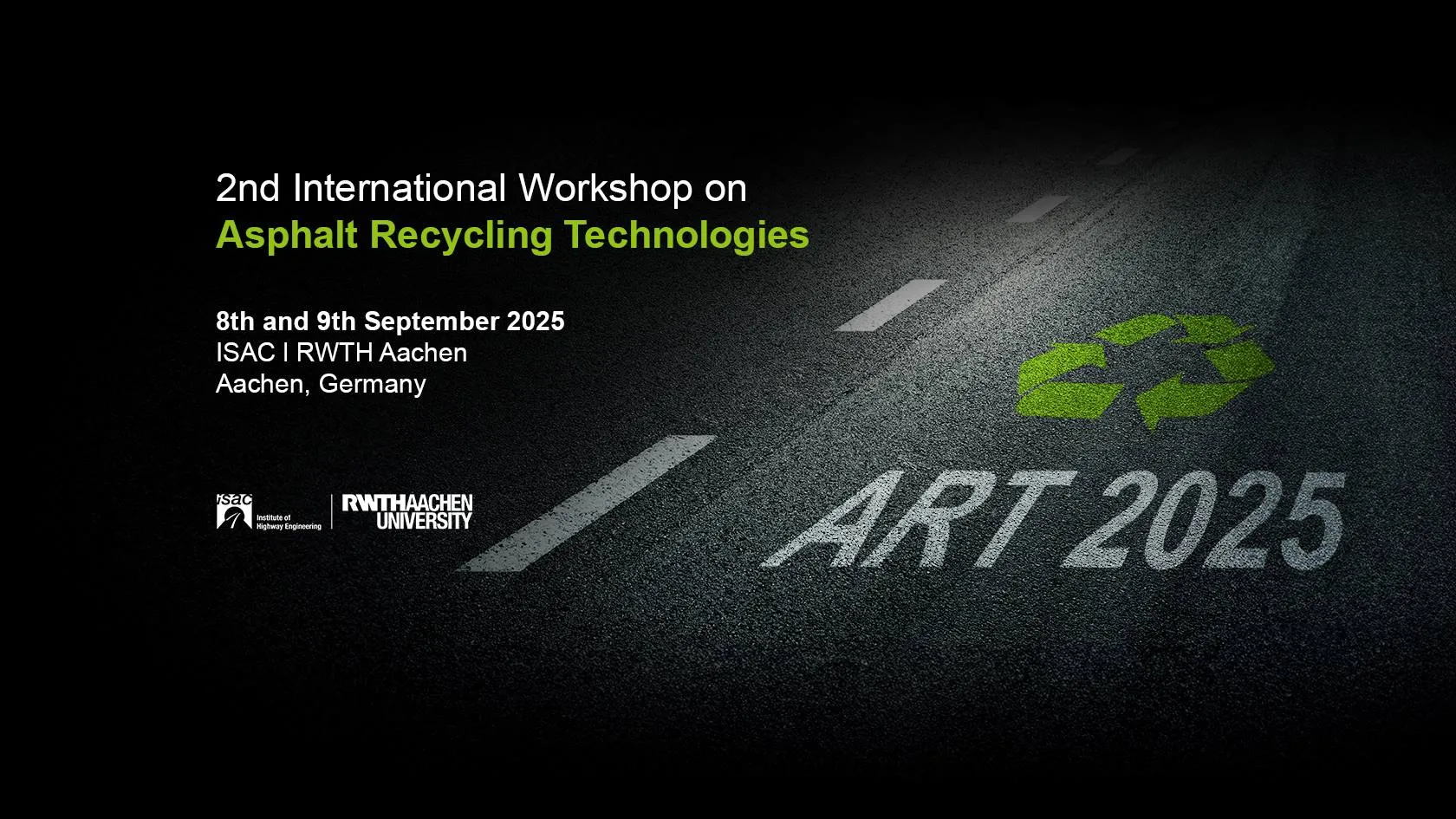
The IRF is a member of the Advisory Group of the EDGAR project aiming at delivering greener asphalt roads
This is an important project as reducing energy consumption is a major challenge and responsibility for the construction industry. This is not just because of the rising prices of fossil fuels, but also because of the ecological impact of the associated emissions of CO2 and other greenhouse gases (GHG).
Alongside recycling, many other technologies, in various stages of development, aim to improve the energetic performance of bituminous mixtures. The use of materials from secondary resources such as steel slag aggregate and the use of alternative new materials, preferably from renewable resources such as bio binders offer major benefits. In addition other techniques offer benefits including additives for reducing production temperatures and/or improving performance, binder foaming technology for reducing production temperatures and rejuvenators for restoring the properties of reclaimed asphalt (RA).
The recently commenced Evaluation and Decision process for Greener Asphalt Roads (EDGAR) project will focus on the sustainability assessment of bituminous mixtures in which these emerging technologies are applied. More specifically, it will assist decision-makers such as road authorities by developing methodologies to assess the viability of new technologies relative to other alternatives and to the conventional technologies already utilised within the industry.
EDGAR is funded by the Conference of European Directors of Roads (CEDR) Transnational Road Research Programme, as part of CEDR Call 2013: Energy Efficiency: Materials and technologies. This drive is being sponsored by Austria, Germany, the Netherlands, Norway, Slovenia and the UK.
The EDGAR project commenced in April 2014, is running over two years and is being carried out by four research organisations. These are the
As a general objective, EDGAR aims to provide a practical and ready-to-use outcome for road administrations. More specifically, the project aims to select appropriate sustainability criteria and boundaries for assessment and collect available data on all sustainability aspects for new materials and technologies for environmentally sensitive bituminous mixtures. It will also propose a refined, quick and qualitative classification system for the assessment of the recyclability of green asphalt when it will have reached the end-of-life, as well as selecting the best tools for the quantitative evaluation of sustainability.
Other tasks include providing a methodology for assessing any emerging material or technology and to determine its overall sustainability, utilising the appropriate tools and demonstrating this methodology for a number of selected test cases.
The project has been divided into five different work packages. The WP1 stage consists of a review of energy efficient materials and technologies and will summarise the information and data for the assessment of their sustainability in a report. It will also propose a classification system for a quick, qualitative assessment of recyclability at the end-of-life. Meanwhile the WP2 stage will establish rules, select tools and provide methodologies that can be used to provide an evidence base with which to make an informed in-depth sustainability assessment of new materials and technologies.
The selected methodologies will be demonstrated within WP3 by means of calculation of some representative case studies. This demonstration will also serve as a practical guideline and put an emphasis on the key elements to be considered when applying the methodologies to new materials/technologies.
The communication and interaction with an Advisory Group is crucial and will ensure that the work done responds to the expectations of national road administrations and other stakeholders. More information on the project is available on the project website: %$Linker:
Taking the wider view, the road construction industry and especially road administrations can play an important role in reducing energy consumption by encouraging and implementing those technological innovations that prove to be the most energy efficient. Road administrations play a major role in the advancement of new green technologies and materials, as they can favour the most sustainable solutions in their procurement criteria and procedures. In order to do this, they need to have at their disposal the correct data and information on which innovative technologies offer the most sustainable solutions. The need for tools and methodologies to provide this information transparently is therefore very pertinent. To meet this requirement provides the prime motive for the ongoing EDGAR project. Written by: J De Visscher (project coordinator); A Vanelstraete, J Maeck & S Vansteenkiste – Belgian Road Research Centre (BRRC): N Bueche & B Schobinger – Swiss Federal Institute of Technology (EPFL); M. Wayman & J. Peeling - Transport Research Laboratory (TRL); I Hoff - Norwegian University of Science and Technology (NTNU)
IRF & FIA join hands for the Challenge Bibendum
Building the future today is one of the main priorities of the next
Initiated by Michelin (IRF member) in 1998, the Michelin Challenge Bibendum has been focusing on sustainable road mobility for more than 15 years. Following the theme of “Innovation in Mobility at the Heart of Growth & Urban Well-being,” this 12th edition will bring together users, providers, and decision-makers to make a difference in sustainable mobility. The five-day event will mainly take place at the Chengdu International Intangible Culture Heritage Exposition Park, which covers an area of more than 1.1 million m2.
More than a simple forum, the Michelin Challenge Bibendum has also evolved into a fully-fledged “world lab of tomorrow’s mobility,” featuring an original format widely hailed by participants. The global event not only demonstrates a number of international initiatives aiming to design tomorrow’s mobility, but also integrates technical tests and rallies, rides and drives, and demos with exhibitions and prospective workshops, as well as encounters with students and VIP speakers.
In 2014, the Michelin Challenge Bibendum will deliver tangible and deployable solutions to policymakers in targeted areas. What’s more, it is chosen as an official event to commemorate the 50th anniversary of the establishment of diplomatic relations between China and France.









